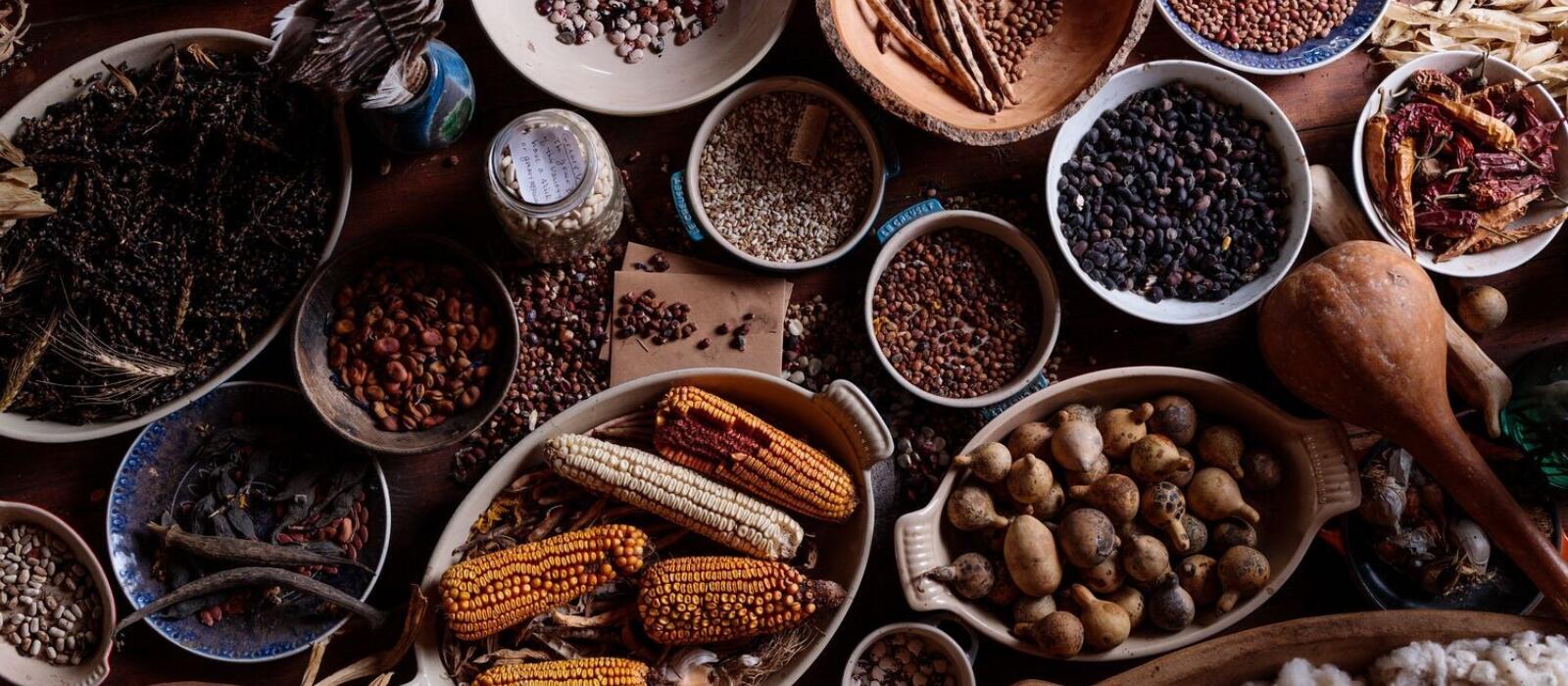Story
Heirloom Tales

We asked Farmstead Manager Christen Waddell to tell us a little more about the heirloom seeds we celebrate in our garden program and why they are important to gardeners and food lovers at Blackberry Farm and beyond.
The basic definition of an heirloom is an open-pollinated, stable crop variety that has been around for at least 50 years. Being open-pollinated, in the case of heirlooms, means that the seeds are produced by the flowers of the plant being pollinated naturally – by a bird, bug, bat, rain, etc. If both parents of the seed were of the same variety, the seed will germinate as a plant of that variety. The importance of this is that you can save seed year-to-year from a variety that you like the taste of, or that grows well in your particular area, and you know that it will grow into the same variety when you plant that seed.
This cycle of an heirloom plant would be as opposed to, for example, a hybrid. A hybrid could be a hybrid because you saved seeds from a plant that was grown too closely to other varieties and they cross-pollinated, or it could be a hybrid because it was genetically modified in a lab. Some hybrids, particularly genetically-modified ones, will not produce seeds at all, or will produce non-viable seeds that will never germinate. Other hybrids, as is usually the case with cross-pollinated hybrids, will still produce seeds that will grow into a plant, but that plant will be a mix of the different parent varieties and their characteristics. (I am talking about a cross that could happen naturally, say a Gulf State Tomato crossing with a Cherokee Purple Tomato, not something like a tomato crossing with a cucumber.)
With this cross-pollinated type of hybrid, it could be accidental or purposeful (although still done with natural pollination). You could eventually create a new heirloom by saving seed from this hybrid every year, specifically from the plants that had the same, consistent characteristics that you wanted, and growing it for another 50 years after its type stabilizes.
One of the biggest benefits to open-pollinated crops is that you can save seed every year to replant, lessening the amount that you have to rely on store-bought seeds. But perhaps most importantly, by saving and replanting seed, you get to participate in continuing the story of that variety and supporting food security.
Diversity in the flavors and textures of varieties (not just growing a single variety) is important for food security, because you wouldn’t want a particular blight or other disease to wipe out your whole crop if you had only planted one variety and it happened to be particularly sensitive. More specifically for us, diversity of varieties is also important for Blackberry's kitchens, both in the restaurants and the Larder. It gives our chefs and artisans a range of color, flavor and texture to choose from so that they can get creative and make something amazing.
Perhaps the main reason that Blackberry Farm grows heirlooms, though, is to preserve our area's history and our roots. Many of the heirloom seeds that we grow come with a rich history and family stories and are a snapshot of a way of life in a moment of our history. For example, the Turkey Craw Bean came from somewhere around Tennessee in the 1800s. It was said to have first been discovered by a hunter when he shot a turkey and found the bean in its craw, hence the name.
In the Garden, we grow a lot of heirlooms, including heirloom varieties of apples, carrots, tomatoes, okra, peppers, peanuts, flowers, pumpkins, cabbages, kale, lettuce and more.
